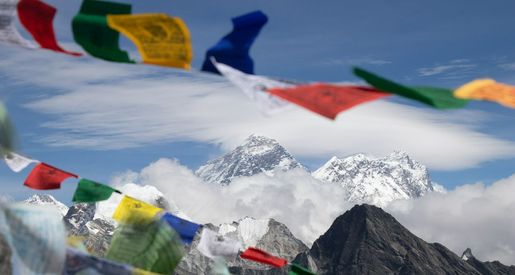- Details
- Category: Knowledge Centre
What happens if I slow the group down on the Everest Base Camp trek?
One question I was asked recently by one of our customers was what would happen if they slowed the group down on the Everest Base Camp trek as they didn't want to be the slowest person in the group.
When you're trekking to Mt Everest, or any of our treks for that matter, some people are concerned about slowing other people down in the group and I totally understand that. However, one thing I mentioned to this particular person, which is something important in my opinion, is that we only go as fast as the slowest person in the group.
Now, if you are going on a trek such as Everest Base Camp, or you're thinking about doing it and you're a bit concerned, then let's take a step back as concerns like this turn up in life all of the time. At the time of writing this in 2018, I was preparing to take on the Cardiff Half Marathon shortly after a trek to Everest Base Camp. I was certainly not the fastest runner and I was very new to it all really. I'm a big hiker and I love climbing and surfing, but running is certainly not something I did all that regularly. I'm very slow compared to most of my friends and I knew that in the Cardiff Half Marathon, I was going to be towards the back.
This got me thinking too...
Will I hold my friends back? Am I going to be too slow?
As with any challenge, you will find out by trying and doing it at your own pace. The thing with high altitude trekking is that it's not about pace, it's not about speed. Every day you will have your target destination and whether you get there at two o'clock or four o'clock, it doesn't really matter.
Most importantly always remember that the slower you go, the better you're going to be able to acclimatise.
Previous Articles
- How to Train for the Everest Base Camp Trek
- How high is Everest Base Camp?
- How much spending money do you need for the Everest Base Camp trek
- What's the accommodation like on an Everest Base Camp trek
- Are showers available on the Everest Base Camp trek?
- What type of toilets are available on an Everest Base Camp Trek







